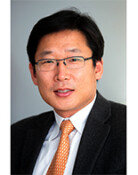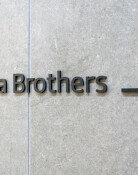[Editorial] Korean Preference for Big Cars
[Editorial] Korean Preference for Big Cars
Posted October. 23, 2008 17:50,
The Korea Transport Institutes survey of 980,000 domestic cars registered last year showed that the average engine was 2.113 liters, 21 percent higher than that of the European Union (1.744). Over the past 10 years, cars with two-liter engines or larger have seen sales jump 4.3 times, whereas those of cars with engines of less than a liter have dropped 48 percent. Korea is going against the international trend by buying larger cars.
Korean preference for big cars has something to do with the mindset of people who want to show off their social status with larger cars. Koreans also discriminate against and look down on people who drive small cars, with many believing that only the poor drive small cars. Drivers of subcompacts or mini-cars are often ignored at hotels, golf ranges and department stores. A lawyer driving a small car to court was stopped by a guard at the main gate. He later bought a big car.
It is time for the government to take action. Finding a small government car is difficult. Only after oil prices started to shoot up did the government replace cars with small hybrids. Yet most ministers and vice ministers still drive big sedans. The Public Administration and Security Ministry recommends that minister-level officials drive 3.3-liter sedans and vice ministers 2.8-liter models. Senior government officials used to drive even bigger cars before regulations were revised in 2006.
A solid and well-made mid-size car can offer all the safety and speed that public servants want from a 3.3-liter engine car. Those sedans need only carry a minister in the back seat without big luggage. If ministers sell the official cars they have and buy used cars with engines between 2.3 and 2.7 liters for the same price, they need not beg the people to use small cars. Many changes will naturally follow.
In his radio speech last week, President Lee Myung-bak said, We import 110 billion dollars worth of fuel. If we cut energy use just 10 percent, we can avoid the estimated current account deficit (of 10 billion dollars). Advanced economies emphasized the small sedan market even before the financial crisis to reduce air pollution, greenhouse gas emissions and energy conservation. Small cars, including subcompacts, account for 85 percent of vehicles in Japan as of 2006.
Celebrities, who exert great influence on the public, should set a good example. At the Tokyo Film Festival that began Saturday under the theme Eco-friendliness, Hong Kong director John Woo, actor Tony Leung and other international stars arrived at the venue in small hybrid cars and walked down a green carpet. Japanese Prime Minister Taro Aso also came to the event in a small sedan.
Headline News
- Israel prepares for retaliation against Iran
- Samsung reclaims top spot, surpassing Apple in smartphone market
- 77% of Koreans in 20s and 30s are 'Kangaroo Tribe' due to job crisis
- KBO referees embroiled in controversy over ABS decision concealment
- Inflation, oil price surge put double shock on global economy






